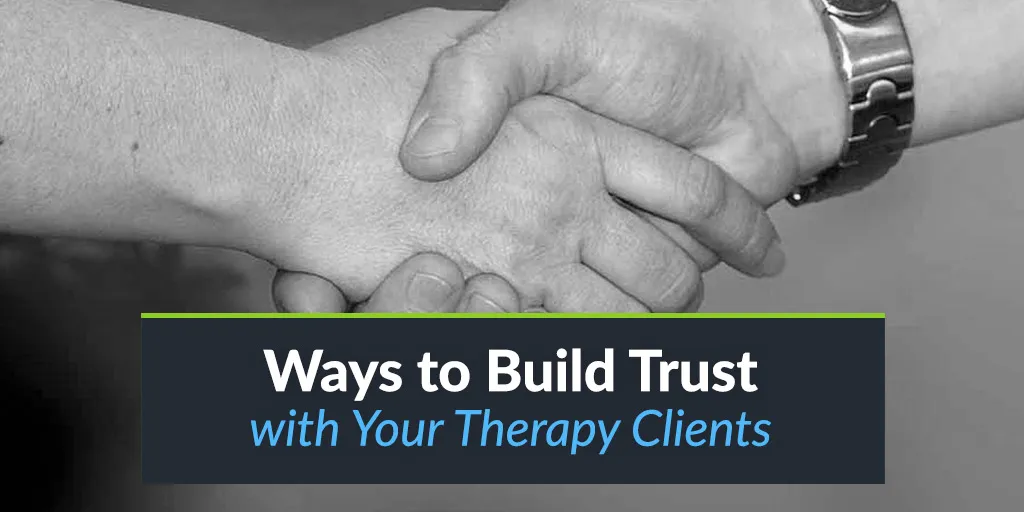Entering therapy can be a daunting step, especially for those who struggle with trusting others. The vulnerability of sharing your innermost thoughts and feelings with a stranger can trigger apprehension, particularly if past experiences have left you feeling hurt or betrayed. However, understanding that trust is a gradual process can pave the way for a more enriching therapeutic experience. In this article, we will explore practical strategies to help you cultivate trust with your therapist, emphasizing that it’s okay to take your time and approach this journey at your own pace.
| Tips for Building Trust with a Therapist | Description |
|---|---|
| 1. Acknowledge that trust isn’t all or nothing. | Trust is built gradually; start small and share at your own pace. |
| 2. Remind yourself that therapy is different from other relationships. | A therapist is there to support you, not to judge or betray. |
| 3. You don’t have to trust your therapist right away. | It’s okay to take your time in building trust. |
| 4. Pay attention to how your therapist responds to small disclosures. | Observe their reactions to gauge their supportiveness. |
| 5. Ask questions if you’re unsure about anything. | Inquire about therapy processes to ease your concerns. |
| 6. Give yourself permission to be skeptical. | It’s normal to have doubts; acknowledge them. |
| 7. Pay attention to their consistency. | Consistent behavior helps build trust over time. |
| 8. Be honest about your trust issues. | Communicate your feelings about trust openly. |
| 9. Recognize that your fear of trusting is based on past experiences. | Understand that past hurts influence your current feelings. |
| 10. Take note of how they handle your boundaries. | A therapist should respect your pace and boundaries. |
| 11. Therapy isn’t about pleasing them. | Focus on your own needs, not on making them happy. |
| 12. Know that trust in therapy doesn’t mean trust everywhere else. | Trust is specific to each relationship; it’s not all or nothing. |
| 13. Give it time, but also know when to walk away. | It’s okay to find a different therapist if it’s not a good fit. |
Understanding Trust in Therapy
Trust is a crucial part of therapy, but it doesn’t happen overnight. Just like planting a seed, it requires time, care, and patience to grow. If you’ve faced trust issues in the past, it’s normal to feel hesitant about opening up to someone new. However, understanding that trust can be built gradually can help you feel more comfortable during your sessions. Each small step you take can bring you closer to feeling safe.
Therapists are trained to help you navigate your feelings and experiences without judgment. They understand that building trust is a process. You don’t have to share everything at once; instead, you can start with small disclosures. This approach allows you to see how your therapist reacts, making it easier for you to feel more secure as you continue in therapy.
Frequently Asked Questions
How can I start trusting my therapist?
Start by sharing small, low-risk thoughts. Observe how your therapist responds to build trust gradually, without feeling pressured to open up completely.
Is it normal to feel skeptical about therapy?
Yes, it’s perfectly normal to feel skeptical. Acknowledge your feelings instead of forcing trust; it takes time to build.
What should I do if I have trust issues?
Be honest with your therapist about your trust issues. A good therapist will respect your pace and not push you to share too soon.
Can I ask my therapist questions?
Absolutely! Asking about the therapy process or confidentiality helps clarify doubts and builds confidence in the relationship.
How can I tell if my therapist is trustworthy?
Pay attention to their consistency, how they respect your boundaries, and how they respond to your disclosures over time.
What if I’m scared of opening up in therapy?
That’s common! Start small and allow yourself time. Trust develops at your own pace, so it’s fine to be guarded at first.
Can I stop seeing a therapist if I don’t feel comfortable?
Yes, it’s okay to find a different therapist if you feel uncomfortable after several sessions. Your comfort is important for effective therapy.
Summary
Building trust with a therapist can be challenging, especially if you’ve been hurt before. It’s important to remember that trust develops gradually and doesn’t have to be all or nothing. Start by sharing small thoughts to see how your therapist responds, and know that you don’t need to open up completely right away. Therapy is different from other relationships; your therapist is there to support you without judgment. If you feel skeptical, that’s okay—acknowledge your feelings and communicate your trust issues. With time and consistent behavior from your therapist, you can create a safe space for healing.

